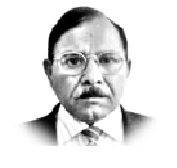Malik M Ashraf
WHILE the world looks the other way, Indian security forces continue extra-judicial killings in the Indian Illegally Occupied Kashmir every day with impunity. According to authentic reports more than 270 people have been killed in cordon and search operations since 5th of August, the day India ended special status of the state, preceded by deployment of additional security personnel there. The litany of persecution by the Indian security forces also includes: custodial killings 17; injuries through torture 1410; pellet injuries to 441; civilians arrested 13766; women molested 89 and persons losing eye sight 144.
The people of Kashmir probably have the longest history of sufferings and resistance against tyranny, persecution as well as for the right to self-determination. Their ordeal started under the oppressive Dogra rule before partition of the sub-continent. The Dogra dynasty ruled Kashmir for almost a century. The Muslims though formed majority of the population but they were treated very badly. The regime and its administration also interfered in religious affairs of the Muslim community. There was wide-spread discontent and resentment against the oppressive governance which kept simmering underneath till it found expression in the agitation that happened in the backdrop of the arrest of a young Muslim man Abdul Qadeer on the charges of terrorism and inciting public against Maharaja of Kashmir. The youth had delivered a speech against the unjust treatment of Muslims.
The arrest of Abdul Qadeer proved to be the last straw on the camel’s back. On 13 July 1931 a sizeable Muslim crowd was agitating against his arrest outside the Srinagar Central Jail. According to recorded evidence police fired 160 rounds of bullets into the crowd killing seventeen people on the spot while another five died later in the hospital. A Hindu writer Prem Nath Bazz in his work ‘Inside Kashmir’ published in 1941 wrote “The driving force behind the mass agitation till the 13th July was the discontent among the rank and file of the Muslims. The attack on the jail was in no way directed against the Hindus, and those who laid down their lives at the jail gate did so fighting against an unsympathetic government … It was a fight of the tyrannized against their tyrants, of the oppressed against the oppressors.” The incident marked the beginning of modern era Kashmir freedom struggle which has traversed through different phases including civilian protests, political agitation and armed struggle.
The partition of the sub-continent pushed the people of Kashmir into an un-ending ordeal. The ruler of Kashmir wanted to join India in spite of the geographical proximity with Pakistan and the majority of its population being Muslim. The rulers of Junagadh and Hyderbad who were Muslims ruled the states with majority of Hindu population. They wanted to join Pakistan but India used the argument of demographic realities and the states not being in geographical proximity with Pakistan to annex them. However in case of Kashmir it accepted the wish of the ruler in complete disregard to her position on the states that it annexed.
There was a revolt against the decision of the Raja. India landed her troops in Srinagar and the situation culminated in war between Pakistan and India. Some parts of Kashmir now comprising AJK and Gilgit-Baltistan were liberated while the major of the territory remained under Indian occupation. India took the matter to UNSC which enforced a ceasefire and adopted several resolutions calling for holding of a plebiscite under the auspices of the UN to decide the question of accession of Kashmir to either of the states.
India accepted the UNSC resolutions and Nehru through several communications with his Pakistani counterpart and his statements in the Indian Parliament pledged to implement the UN resolutions. But regrettably India reneged on its commitment. It struck a deal with Sheikh Abduallah by giving special status to IO&JK with its own assembly and catapulting him to the position of Chief Minister of IO&JK. Through the Constituent Assembly thus elected it passed a Constitution declaring accession of the state to India. The UN through its resolutions 91 and 122 repudiated the Indian move reiterating that the question of accession could only be resolved through a plebiscite held under the auspices of the UN.
Indian intransigence to fulfil her commitment forced the people of IO&JK to pick up arms in 1989 to win their freedom. India on its part has used ruthless military might to quell the uprising. Its security forces have since then killed more than one hundred thousand Kashmiris besides raping thousand of women. Modi government further aggravated the situation by ending special status of IO&JK, its annexation to the Indian Union in sheer violation of the UNSC resolutions and international law. Kashmir is under continued lockdown since 5 August 2019 and the killing spree continues unabated. India has also adopted belligerent posture towards Pakistan and the latter rightly feels that Indian disposition towards her and what it has done in IO&JK inebriated by RSS philosophy of Hindutva, constitutes a grave threat to the security of the region.
However, the redeeming factor is that the world community in spite of its apathy to the plight of the people of IO&JK has not accepted the Indian narrative of the issue being her internal matter. UNSC has also reaffirmed the resolution of the dispute through its resolutions. International media and human rights organizations including the UN Human Rights Commission in their reports have spotlighted abuse of human rights in the valley. The people of the state undeterred by the Indian oppression seem determined to win their freedom at any cost. Pakistan being a party to the dispute remains firm in her moral, political and diplomatic support to the freedom struggle of the Kashmiris. The civilian and military leadership of the country has vowed to go to any extent to achieve that objective. The situation calls for immediate intervention by the UN before it triggers a cataclysmic situation.
— The writer is freelance columnist based in Islamabad.









